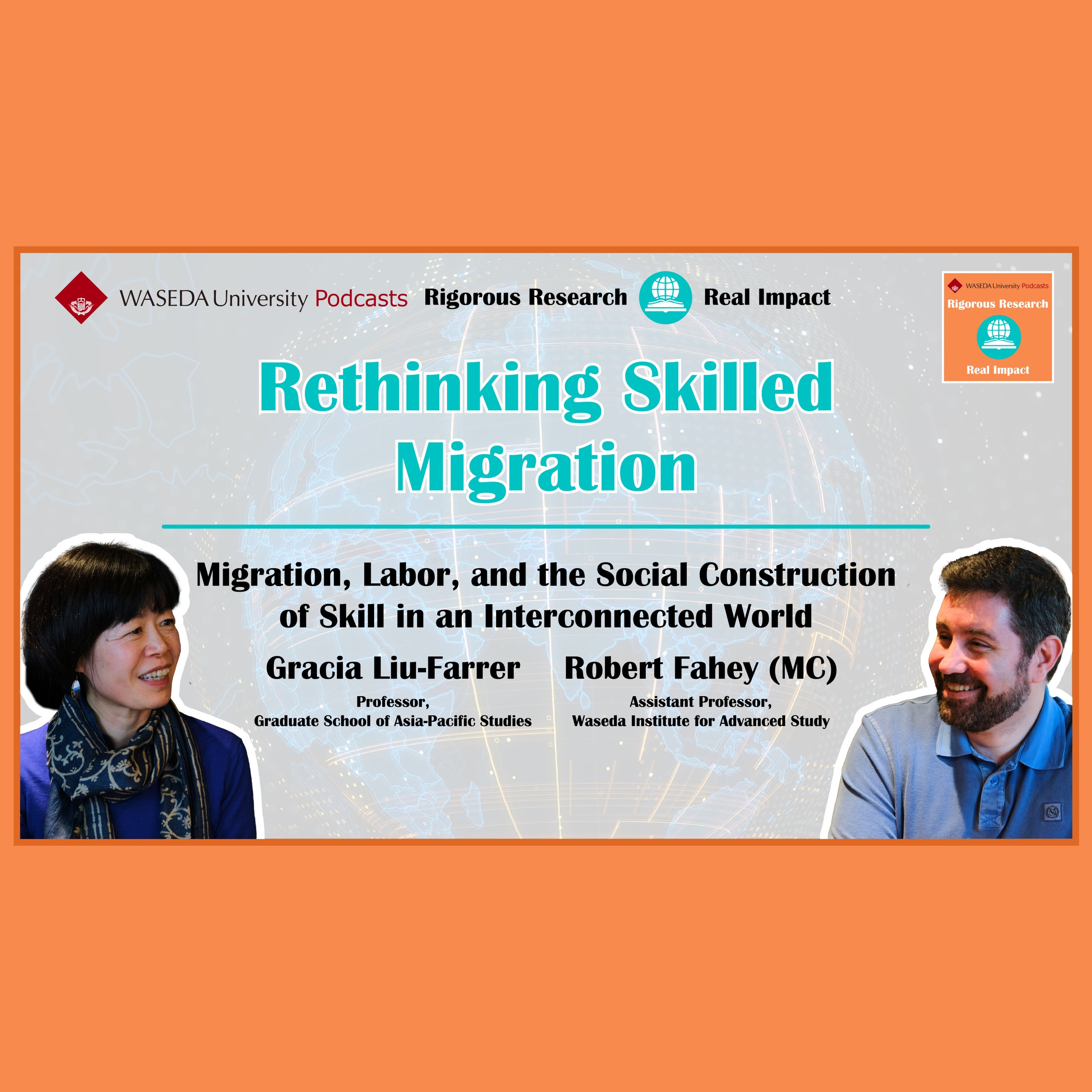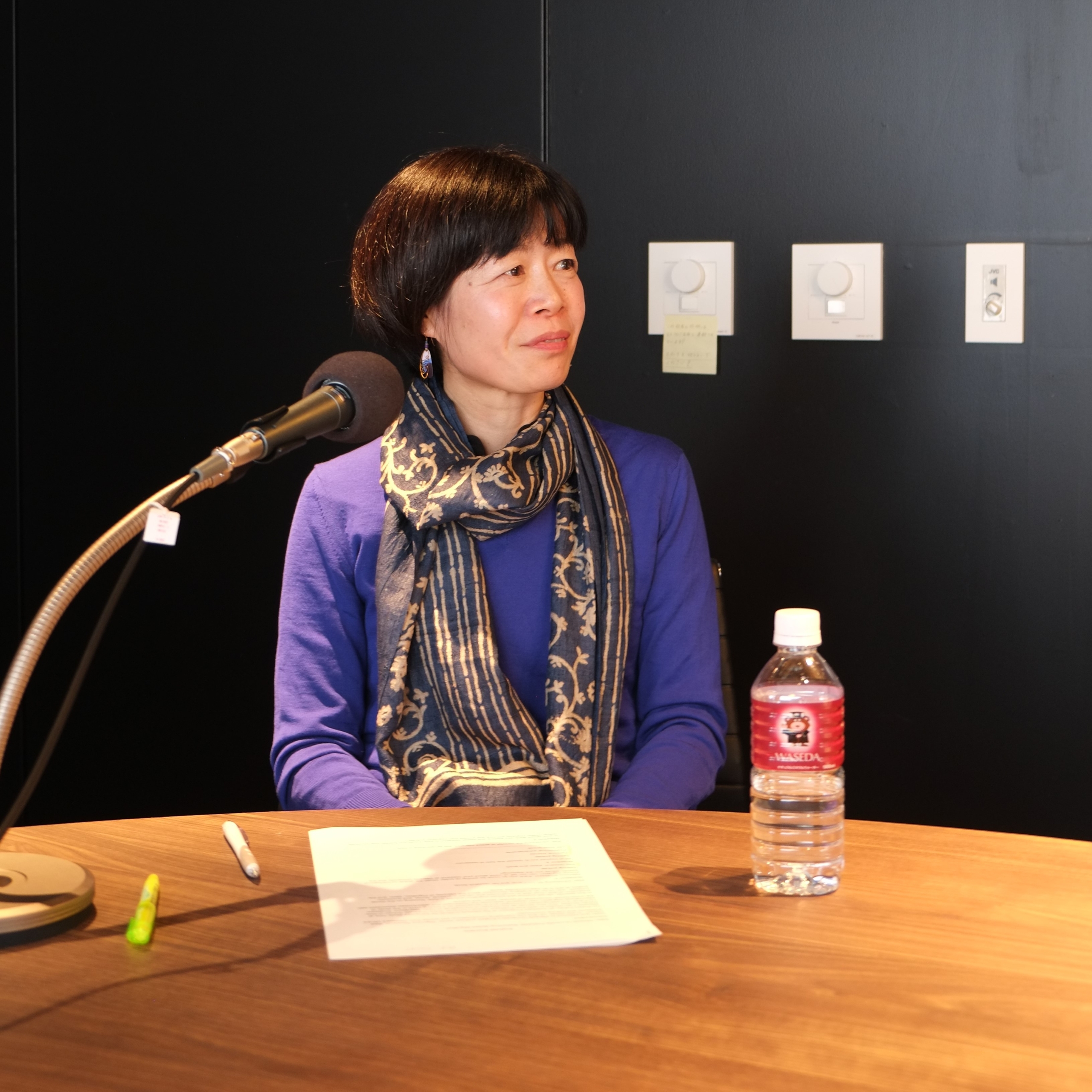[Podcast Column] Asia’s Unique Migration Challenges
Thu, Jun 26, 2025-
Tags
The first 8-episode series of Waseda University’s English podcast “Rigorous Research, Real Impact” is currently streaming for free on Spotify, Amazon Music, Apple Podcasts, and YouTube.
Episode 6 “Rethinking Skilled Migration” features Professor Gracia Liu-Farrer (Graduate School of Asia-Pacific Studies). In the excerpt below she uses her expertise as a sociologist specialized in cross-border migration to think about the unique challenges of migration in the context of Asia.
Question: With regards to migration in Asia, what sort of unique challenges do you think are faced within this region?
Professor Liu-Farrer:
I think in Asia there is a very distinct pattern of migration which is a temporary labor placement. This is not something that people in North America or Europe oftentimes think about. But Asian countries…are mostly decolonized nation states. And they tend to have a lot of anxiety about nationhood, about sovereignty, about borders, about population management and they tend to be more wary, of, say, immigration, population mobilities, and many of them, both domestically and internationally, want to bind people to the land so that it’s easier to control.
So obviously now the Asian countries have an imbalance of economic development. Some regions are more advanced than others and also some regions, especially advanced economies in Asia, also have population aging and low fertility rate and the labor shortages. So, they demand labor, but at the same time they are anxious about having a lot of foreigners in their country and they rely on this temporary labor placement. So, use them and dispose them. Oftentimes in Japan as well, in Korea and other countries, people are on contract all the time, and after contract terminates, the visa terminates. They don’t have the opportunity to stay. I think this sort of situation really easily leads to deskilling…because it’s just a three-year contract.
People don’t get to develop their skills sufficiently and then once they develop skills, the contract terminates, they have to leave, right? And oftentimes these people who come to work for three years probably have a different skill sets and they never got to use those skill sets in the host country. When they go back to their home country, they don’t get to use the skills to develop in the home country.
Supposedly this should be, for example, Japan’s technical internship, but the reality is they don’t because they see this temporary labor placement as a way for economic gains. And the government, the employers, all see them just as temporary labor. So, I think this is a situation in Asia which leads to a lot of deskilling, leads to a lot of underemployment and also leads to oftentimes labor abuse as well, right?
You have very restrictive labor regimes as well as migration regimes. I see this temporary labor placement and inflexibility of migration regime, especially a labor migration regime, as big challenges that Asian countries will face because given the population aging, I think this migration will continue.
And the countries that we live in, for example, Japan is the oldest country and needs huge amount of labor. But until recently it was very restrictive. Sometimes I wonder if it’s already too late for some of these Asian countries to now start broadening immigration and they could have started earlier.
About the Guest:
Dr. Gracia Liu-Farrer is Professor of Sociology at the Graduate School of Asia-Pacific Studies, and Director of Institute of Asian Migrations, Waseda University, Japan. Her research investigates cross-border migration and immigrants’ socioeconomic and geographic mobility in Asia and Europe. Her articles have appeared in International Migration Review, Journal of Ethnic and Migration Studies and International Migration. She co-edited Routledge Handbook of Asian Migration (2018, with Brenda Yeoh) and authored monographs Labour Migration from China to Japan: International Students, Transnational Migrants (Routledge, 2011) and Immigrant Japan: Mobility and Belonging in an Ethno-nationalist Society (Cornell University Press, 2020).


![[Podcast Column] Asia’s Unique Migration Challenges](https://www.waseda.jp/top/en/assets/uploads/2025/06/English-Podcast-Column-6-full-quality.png)













